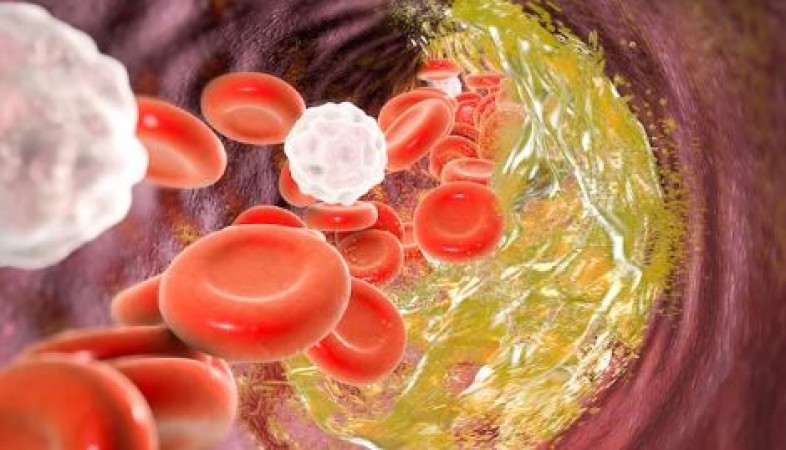
High levels of bad cholesterol (LDL) in the blood can lead to serious health issues, including heart disease and high blood pressure. One effective way to manage and lower your bad cholesterol levels is by including a specific food in your diet. This food is not only beneficial for your overall health but also plays a crucial role in filtering out bad cholesterol from your arteries. Let's explore this beneficial food and how you can incorporate it into your daily diet.
The Role of Cholesterol in Your Body
Cholesterol is a fatty substance found in your blood that is essential for various bodily functions, including hormone production and cell membrane structure. However, an excess of bad cholesterol (LDL) can lead to plaque buildup in the arteries, restricting blood flow and increasing the risk of cardiovascular diseases such as heart attacks and strokes.
The Benefits of Soluble Fiber
The key to managing bad cholesterol lies in the consumption of soluble fiber. Soluble fiber helps lower LDL cholesterol levels by binding to cholesterol molecules in the digestive tract and removing them from the body. This process prevents cholesterol from being absorbed into the bloodstream and helps maintain healthy arteries.
The Best Source of Soluble Fiber: Oats
One of the most effective sources of soluble fiber is oats. Oats contain a type of soluble fiber known as beta-glucan, which has been shown to help reduce LDL cholesterol levels. Beta-glucan forms a gel-like substance in the digestive tract, which binds to cholesterol and bile acids, aiding their removal from the body.
How Oats Help Filter Out Bad Cholesterol
Binding Cholesterol: When consumed, oats dissolve in the stomach and form a viscous gel that binds to cholesterol. This gel helps carry cholesterol out of the body through the digestive system, reducing the overall cholesterol levels in the bloodstream.
Reducing Absorption: By binding to bile acids, oats prevent their reabsorption into the bloodstream. The liver then uses cholesterol to replace the lost bile acids, leading to a decrease in blood cholesterol levels.
Promoting Healthy Digestion: The soluble fiber in oats also supports healthy digestion by promoting regular bowel movements, which is crucial for maintaining overall health and cholesterol levels.
How to Incorporate Oats into Your Diet
Including oats in your diet is simple and versatile. Here are some easy and delicious ways to add oats to your meals:
Oatmeal: Start your day with a bowl of oatmeal. You can prepare it with water or milk and add fruits, nuts, or seeds for extra nutrients and flavor.
Smoothies: Blend oats into your morning smoothie for a creamy texture and additional fiber. Combine oats with fruits, yogurt, and a splash of milk or juice.
Baked Goods: Use oats in baking recipes, such as muffins, cookies, or bread. Oats can be incorporated into various baked goods to enhance their nutritional value.
Granola: Make homemade granola by mixing oats with nuts, seeds, and a touch of honey or maple syrup. Enjoy it as a snack or sprinkle it on yogurt or salads.
Overnight Oats: Prepare overnight oats by soaking oats in milk or a milk alternative overnight. In the morning, add your favorite toppings and enjoy a quick and nutritious breakfast.
Additional Tips for Managing Cholesterol
In addition to incorporating oats into your diet, consider these additional tips for managing cholesterol levels:
Eat a Balanced Diet: Focus on consuming a variety of fruits, vegetables, whole grains, lean proteins, and healthy fats. Reduce intake of saturated and trans fats, which can contribute to high cholesterol levels.
Exercise Regularly: Engage in physical activity such as walking, jogging, or cycling to help raise HDL (good) cholesterol and lower LDL (bad) cholesterol.
Avoid Smoking: Smoking can damage blood vessels and contribute to the buildup of plaque in the arteries. Quitting smoking can improve overall cardiovascular health.
Limit Alcohol Consumption: Excessive alcohol intake can raise cholesterol levels and contribute to heart disease. Moderation is key.
Including oats in your diet is a simple yet effective way to manage and lower bad cholesterol levels. With their high soluble fiber content, oats help filter out cholesterol from your arteries, promoting heart health and reducing the risk of cardiovascular diseases. By incorporating oats into your daily meals and following a balanced lifestyle, you can take proactive steps towards maintaining healthy cholesterol levels and overall well-being.
If You Want to Increase Strength, Include These Things in Your Diet
These 5 'Nectar' Foods in Ayurveda: Avoid Disease by Knowing Who Consumes Them